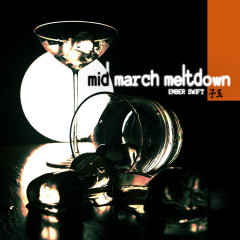Family Money, Chinese Style
When I first met Guo Jian, he was one of the few Chinese people I’d come across who had a car—young people, that is. Especially in the world of musicians who make so little per gig, cars are rare here. He was working with a famous Chinese rock star at the time, though, and he had become pretty famous himself as a result of that initial association, so I figured he just made a fair bit of money and that he was able to afford it. It wasn’t a new car, but it was his.
I also discovered early on that the apartment he lived in was also his. He owned it, he told me, when he first invited me for tea and I had a glimpse at his spotless abode. (Oh, how he tricked me into thinking he was a neat freak!) And, about his possessing property, I am a bit ashamed to say that I was impressed. I knew even then that housing is very expensive in Beijing, particularly compared to the average wage. I immediately viewed him as stable, mature, and financially secure.
In China, one of the biggest problems facing single young people is the expectation that they will offer assets to future brides or grooms. It’s a very old idea—i.e. dowry or bride price—and, truthfully, the pressure generally lies more firmly on the men’s shoulders. They must prove that they have adequate “stuff,” such as a home and a car and a good job. Only then are they likely to find a mate willing to marry them.
Guo Jian’s cousin—who is more like his little brother as they were raised very closely—has finally found a girlfriend after years of never having one. He is nearly 30 years old and his girlfriend is 23. They are crazy about each other and it melts my heart to witness.
They went back to her hometown this past month to meet her family, but the elders didn’t approve of their relationship. They not only found him strange looking, (which might have something to do with his bushy hair and baggy cotton clothing all purchased during his solo bike trip from southwestern China into Tibet,) but they mostly feel that he isn’t secure enough for their daughter. He doesn’t own property or a vehicle. His good job notwithstanding, a non-standard appearance cancels out a steady income. Without family support, their relationship may never have a future unless he convinces them of his worth over time. Here in China, families can make or break a union. It’s a sad reality.
So, when I viewed Guo Jian with those eyes—assessing his worth based on his material possessions—I am guilty of exactly what I am criticizing.
But, let me explain.
I knew I was older than Guo Jian when we met. With age, comes a more established life. I co-owned a home, had a long career history with dozens of international tours, had bought and sold several vehicles, and basically had been on my own two feet for a long time, financially and otherwise. It was my normal.
But, meeting a younger partner in a country in which self-sufficiency from family is so rare, I felt anxious that my foreignness—a saleable commodity here—would be expected to carry us both financially, which is a situation I have seen often among foreigners who are partnered with Chinese, especially foreign women with Chinese artists. Becoming a “sugar momma” was the last thing I wanted and the first thing I feared. So, with these eyes, I saw his possessions as proof that this was not going to happen and felt relieved.
We were already deeply in love before I realized that I was, in fact, not seeing an adult who had stood on his own two feet and demonstrated good money management and a successful career; I was seeing the result of a supportive family and the Chinese notion of “family money.” Now, you can tell by my tone and choice of language that I had judgments about this. Westerners generally do. We value financial independence, even equating it with the meaning of adulthood, and we tend to look down upon those who don’t aspire to achieve it.
In Chinese culture, however, a parent’s money and assets belong just as much to the child as they do to the parents. It was his parents who had purchased the house and the car. It was his parents who made sure he was never short of cash if there was ever a lull in his income. For them, this was not unusual or indicative of a child leaning too heavily on his family, nor was he failing to be independent. It was normal, the Chinese way, as it should be (yinggai de 应该的).
And even though it was his parents who had paid for these major things in his life, his language did not reflect this. Guo Jian is considered completely within his rights to say that it is “his apartment” or that “he bought his car” or that certain things that clearly belong to his parents are his too.
I struggled with this for a long time. Superimposing my own culture onto his, I viewed his dependency on his parents as inappropriate and immature, a form of weakness, and proof of his future inability to support a family let alone himself. Not that I had expectations of him to build a family with me, mind you, but it’s fair to say that we always pre-judge future partners on our predictions of their ability to “make it” in the long run, whether its for the sake of family, self or the partnership. We ask ourselves, “Does this person share my values?” Or, “Can I live with how this person lives their life?”
These questions are human.
Then, his mother (the financial head of the family) sat me down after we were already engaged—albeit just barely. The evening sun had just set on a spring day in Beijing. She was visiting our apartment and had spent the day organizing his clothes and doing our laundry by hand, much to my silent horror. Guo Jian was not at home. In an atypical Chinese manner (read: direct), she asked me sit down with her so that we could talk. I, of course, agreed. As soon as my butt hit the chair, she dove right for the subject’s heart as though she had known all along that I was stressing about it.
“China is not like other foreign countries,” she began. “Our money is Guo Jian’s money. Chinese parents don’t expect their child to be fully financially independent, especially not when they’re still establishing their careers. We’re not like your country where parents abandon their children at 18.”
I shifted uncomfortably in my chair. I chose not to interrupt and correct her at the time.
(Rest assured, she now understands that this is not a universal truth in the West; many parents still help their children until they are financially independent, I’ve since explained. She was pleased to hear that.)
“We have worked our whole lives with only one purpose in mind and that is to provide for him. Everything is his. The house in our hometown is in his name. He has insurance policies. He will inherit everything. But when we need care and support, he’ll give it to us too. That’s his job as a son when we’re old but, right now, this is our job as parents.”
I nodded my understanding, faintly grasping that I had unknowingly signed up for a future of co-dependency with my in-laws. She went on.
“In marrying Guo Jian, you will not lack for anything. He is all set. You’ll be provided for too, like a daughter, as will any children you two might have. If you don’t need our help, then we’ll just put the extra money aside. If you do, then it’s yours. That’s the Chinese way. That’s what being a parent means to Chinese people.”
Something about the tone of this last sentence sounded like a veiled instruction for future motherhood. I chose to ignore that too.
(If parenthood were meant to be, I thought, I’d have plenty of chances to show her what being a parent means to Canadian people.)
And with that, her “discussion” was over. She didn’t ask my opinion or my feelings on the matter. She was trying to assure me, I know, but when she was finished speaking I wasn’t sure if I felt better or more intimidated by the situation. Because, really, it’s so foreign to me—the person who, at the time, was already 34 years old and had long been self-sufficient. Not only that, I was an advocate for self-sustainability in the arts, especially. Now what was I supposed to say, I thought? Was I supposed to thank her or back slowly away? Was I supposed to feel lucky or cursed? Since I couldn’t determine my appropriate response, I just nodded several times, explained that I had understood what she meant, and took my leave.
From then on, the generosity I have seen from his parents continues to astound me. They don’t see it as generosity, however. To them, it’s “yinggaide 应该的” (as it should be). They paid for half of our honeymoon to Thailand. They bought us a new and more fuel-efficient vehicle when our daughter was born. Now they want to invest in a home in Canada for their grandchildren’s future and they expect us to live there when we eventually move back. While we certainly pay our own living expenses like rent and food (and he does earn a living!), even my MIL’s choice to retire from her job and then move to Beijing to be a caregiver for our daughter is 100% without expectation of payment. In many ways, I feel as though I won the lottery. Free childcare? It’s unheard of among my Canadian friends.
Especially as an artist, it’s reassuring to have a tangible support network for the first time in my adult life. That doesn’t mean my own parents haven’t offered a safety net to my sister and I; it just means that through hard work and our attainment of what we deemed to be the ideal: financial sustainability, we haven’t required landing in it.
(This is also on the heels of experiencing my ex-partner’s parents who, for religious reasons of disapproval and disbelief, never even put my name on a Christmas card. It was worse than not being formally acknowledged as her partner for nearly a decade; it was cruel. While that wasn’t the reason for our eventual split, it demonstrates that families can make or break unions everywhere, just for different reasons.)
Yet, with this relationship that I’m in with Guo Jian, I sometimes still wonder if I’ve married a person or a family, at least in the financial sense. And I also wonder if, in the future, he will be this same kind of father for his children—the kind who puts everything aside for them and who does all he can to enable their development in whatever career paths they choose. I so hope so.
Of course I don’t feel that Western ways are wrong (regarding advocating financial independence from parents early) but nor do I now judge these Chinese ways as wrong. It’s collaborative consumption, socialism and sharing all bound into one. I support these notions in so many ways, it’s just that sometimes I have a hard time figuring out how I fit into it all. As usual, I’m in an expat grey zone. Some days, I find it really invasive. Other days, I can’t believe my luck.
No matter what, I will always value independence. It is part of who I am as a Westerner, therefore, our children will get mixed messages on this front, I know. There is no avoiding it. Since they’re of mixed heritage, you have to admit: it’s just how it should be.
Ying gai de 应该的!








